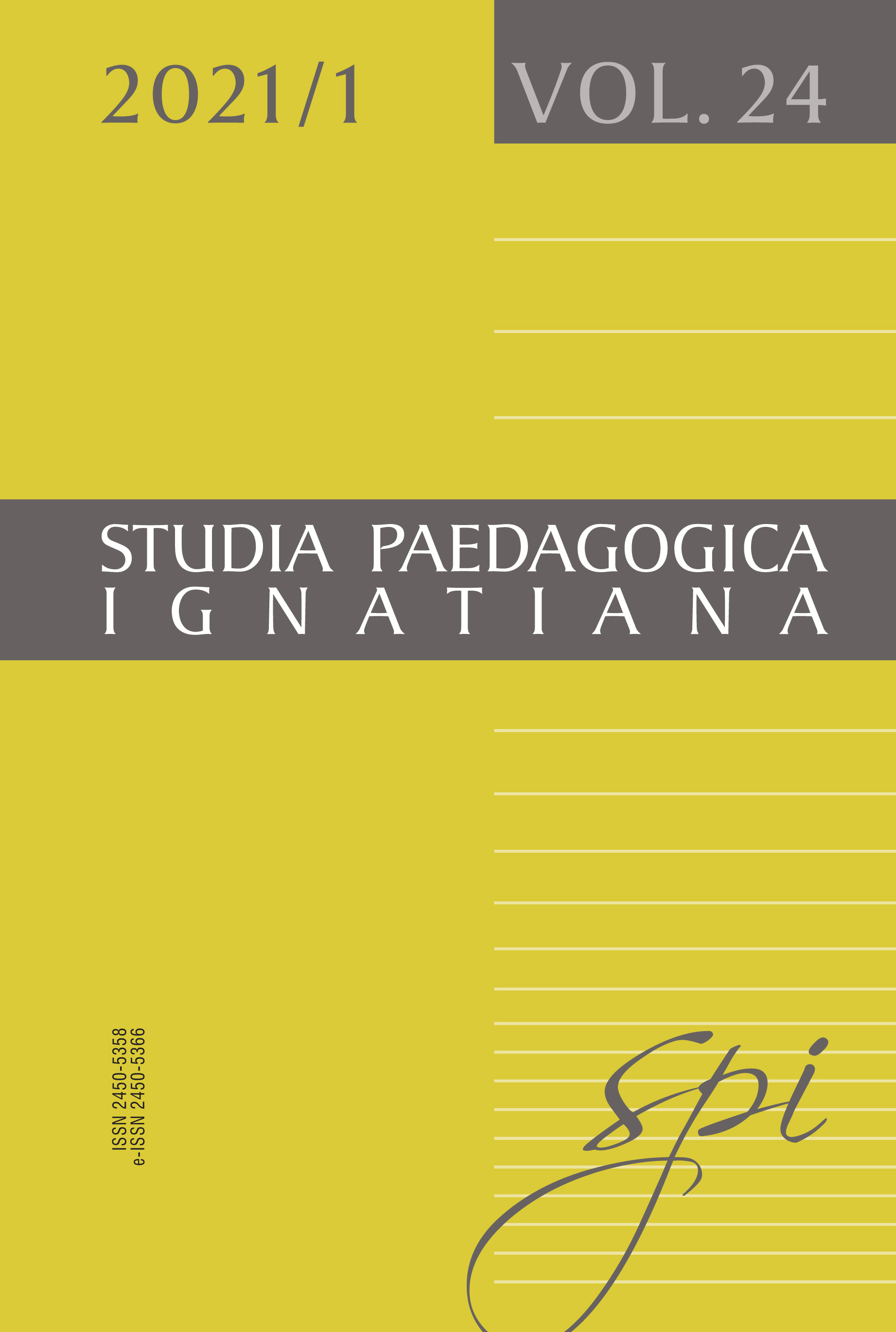Świadomość aksjologiczna i/a tożsamość człowieka – perspektywa edukacyjna (analizy i refleksje)
Axiological Awareness and Man’s Identity: Educational Perspective (Analyses and Reflections)
Author(s): Mirosław KowalskiSubject(s): Social Sciences
Published by: Uniwersytet Ignatianum w Krakowie
Keywords: awareness; axiology; education; identity; man
Summary/Abstract: Reflections on and analyses of axiological awareness and identity are important for at least two reasons. Firstly, the subject of upbringing is a moral one; secondly, one can hardly have any influence on a subject unaware of who she/he is, what his/her ontological constitution and anthropological space are. The present reflections are located within the domain of education (at all its stages). At the same time, axiological awareness, identity and ethical subjectivity underlie various portions of the pedagogic discourse, including those that we are not, upon first glance, used to identify with pedagogics and philosophy of education. It turns out that the multiplicity of these reflections – more often materializing in an implicit manner, less often called by name, elaborated into fully apprehended paradigms – make up a multi-colored mosaic of deliberations upon the manner of operating as educational subjects. Therefore, axiological awareness, identity and ethical subjectivity underlie the same conceptuality which encompasses the arbitrariness of educational anthropology. At the same time, the ethical way of being amounts to the most adequate one: the question about good is the first criterion of rationality i n i t. Axiological awareness constitutes a n e - c e s s i t y of a sensible response to the reality of life thus understood. In itself – as a negation of ignorance – it presupposes a sense of ethical causality, subjectivity. It appears that only a man aware of his own axiology, convinced of the ability to actively participate in the world of obligations, negating the post-modernistic inertia, preferring creative change over indolence caused by torpor – should be the parenetic model in education.
Journal: Studia Paedagogica Ignatiana
- Issue Year: 24/2021
- Issue No: 1
- Page Range: 83-99
- Page Count: 17
- Language: Polish

